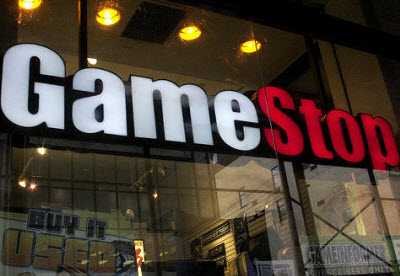
GameStop made its online gaming move yesterday by purchasing Kongregate, a fast-growing web site for indie Flash games. The world’s biggest game retailer, with more than 6,000 stores, knows that digital distribution is coming to games just like it did for music and movies. Will GameStop wind up like the now defunct Tower Records and Hollywood Video store chains, or will it navigate the transition to digital game distribution through deals like the Kongregate purchase?
We put the question to the executives who handled the deal: Shawn Freeman, senior vice president of e-commerce and general manager of digital business for GameStop; Chris Petrovic, general manager of GameStop Digital Ventures; and Jim Greer, chief executive of Kongregate.
VB: Can you talk about why you did this deal?
Petrovic: You’ve seen us articulate our digital vision of being a customer destination and aggregator in recent months. We want to have that role in the online realm just as we do in the digital realm. We have been doing that very well. We are a leader in the free-to-play online game market, with a target on the hardcore audience. We see an overlap in the audience that Kongregate has. We are trying to expand our offerings for our consumers and so we thought it was a really good fit on both fronts.
 Greer (pictured right) : On the Kongregate side, we have had interest from other parties. We won’t name names. But we have never felt as close in strategy to anyone as we did with GameStop. That may sound strange, given that they are a retailer and we are a game portal. The thing we both do is aggregate the best games, recommend them to players, and sell them. Online, we are able to add social features such as achievements, networking and other things that GameStop wants to bring into its mix. It is very different from the strategy of a major media company, or Google.
Greer (pictured right) : On the Kongregate side, we have had interest from other parties. We won’t name names. But we have never felt as close in strategy to anyone as we did with GameStop. That may sound strange, given that they are a retailer and we are a game portal. The thing we both do is aggregate the best games, recommend them to players, and sell them. Online, we are able to add social features such as achievements, networking and other things that GameStop wants to bring into its mix. It is very different from the strategy of a major media company, or Google.
They are very focused on this. I will report to the president of the company. That’s not a common thing when a big company with 55,000 employees acquires one with just 20 employees. We are a place for people not just to play games, but to share them online and buy virtual goods. We talked to them for nine months plus and they have clearly communicated what they want to do with us. They are not just doing this reactively. They have a long-term vision. We actually have audiences that share a lot of characteristics. Our core audience is hardcore gamers who own consoles and it makes sense to bring those audiences together.
Freeman: We need to understand our core customers and their interest in playing games in the living room, on the PC, and mobile.
 VB: How does this acquisition fit with your Jolt online game business at GameStop?
VB: How does this acquisition fit with your Jolt online game business at GameStop?
Petrovic (pictured, right): Jolt is yet another piece of the puzzle for GameStop to learn more about this online free-to-play market. They create games based on third-party intellectual property. They are working with Activision Blizzard on the Legend of Zork property and turning it into an online game. We see that as giving us direct insight into game developers and we can help publishers exploit properties that they aren’t handling themselves. Kongregate is an aggregator of games created by others. We can see Jolt and Kongregate working together. They will operate autonomously.
VB: I assume you aren’t finished yet with your digital online strategy. This deal is just one piece of the puzzle and you will want to push further into digital distribution.
Petrovic: We are always looking at other opportunities. We can’t disclose them.We are extremely happy with what Kongregate brings to us and see it as a sign of things to come.
VB: Jim, you never raised much money at Kongregate. What was your strategy? Did you want to stay independent?
Greer: We raised $9 million and did a lot with that money. We were capital efficient. I’m an engineer and I had a specific idea of what we wanted to build. We ran lean. We could have stayed independent. We looked at raising another round to expand into mobile and other areas. The decision came down to providing a return to our investors. I can’t comment on the purchase price. But everybody is happy. What was more important for me was to find the best home for this company. What is the most likely way for my daughter to play games 15 years from now and still play something related to Kongregate? If we sold to a big media company, I would feel less sure that we would survive in the shuffle. It was a financial decision, but also an emotional decision about what would be the right home.
 VB: What is important for you now, considering you will continue to run Kongregate after the deal closes? How will Kongregate keep growing?
VB: What is important for you now, considering you will continue to run Kongregate after the deal closes? How will Kongregate keep growing?
Greer: We want to go beyond the desktop to mobile and other venues for gaming. What gamers want is to play games on different screens. We are not big on the iPhone. We make social games and monetize them through our own platform. Apple wants to control its own platform. We are betting heavily on Android because it is more open and they are working on providing a great experience. We are looking for other opportunities like that. We will continue to have great indie games with the fidelity of top games. You see Electronic Arts trying to make the move online with its Tiger Woods golf game. We will compete with bigger players and won’t sit still.
VB: Kongregate’s revenues are sure to look small inside GameStop. Industry executives such as Steve Perlman of OnLive say that digital distribution is coming fast. Do you feel like you are moving fast enough in this digital online transition?
Freeman: We are. We are clear about our strategy to do a digital migration. We are selling games today and want to expand to all kinds of other digital game play. Digital game play is not replacing our current retail games. We are working on our downloadable content for console games. We talked about that. We can’t share numbers. But we have seen good early results for that. We have progress with this front. You will see additional steps from us in the future.
VB: Will you promote Kongregate in the stores?
Freeman: We are not prepared to get into details on how we promote Kongregate. We have said we have tremendous access to gamers. We have more than 500 million customers come through GameStop stores every year. We have 10 million to 15 million unique visitors a month on our web site. We want to expose that audience to all of the wonderful games on Kongregate.
VB: Jim, you got to 10 million monthly unique users. How did you grow?
Greer: There is a firehose of great games out there. We get more than 1,000 new ones a month. Everyone of those is a new source of links and key word searches for our content. Then we have social features where people can recommend games to their friends. We retain our traffic because of those social hooks. Google is the No. 1 source of our visitors and Facebook is No. 2. We had a lot of good content and organized it well and made it social.
VB: Are you planning to do Facebook games?
Greer: We have Facebook Connect integration and it is our No. 2 source of traffic. But we are not trying to do the kind of games that are currently on Facebook.
Freeman: We see Facebook as a valuable gamer acquisition channel for us, but there are aspects of the casual play on Facebook that are not a match for our hardcore audience. Our strategy is more about drawing audiences to our own destination site.
